
Back To Eden With Jethro
My mother kept a book by this title amongst her kitchen recipes. She gave it to me a few years back when she was purging the randomness of fifty plus years of homemaking– but it didn’t turn up when I unpacked after our move this last time.
It was a small, thick book. Like my mother’s recipe collection, it carried the stains of kitchen wear: dog-eared, yellowed, splotched, some of it missing. There was a spirit of frontier and pioneering about it– further proof to me that it was an inheritance. Jethro Kloss, a fellow with a passion for both herbal remedies, and their culture, wrote it. He was also enthusiastic about gardening.
I think of “Back To Eden” with conflicted nostalgia. It was around most of my life, not just a relic, but an heirloom of sorts. Mom searched it when she was at her furthest limit of worry over one of her children’s ailments; if I knew I was the reason she was turning its pages, I felt both a wary hope, and the anxiety of an indictment. It’s both ironic and relieving– also a little disconcerting– that “Back To Eden” is finally lost to me now, at my last stop, our edge-of-the-wilderness home. Where once again, at least for a few seasons, I’m bereft of Eden.
Some passages of the book I read as a child, some as a young mother. Each time, I found Jethro’s archaic (and blunt) voice compelling. He addressed the vulnerable, corruptible mortal body– her functions and conundrums– with a stern tone; he was terse and authoritative as he enumerated treatments and prescriptions and cautions. For every possible complaint (even life threatening ones), he advocated a nature/garden-derived treatment; one that seemed to me to exert both practical and moral pressure. Not remembering particulars now— which herbs for which complaints– I still remember my fascination becoming displaced by the weight of his dogma. One could not casually peruse, or easily dismiss him– was he apocryphal, or inspired? There was no joking with Jethro, no friendly middle ground, no casual give-and-take. No easy escape.
Well, until I lost the book. That was easy enough.
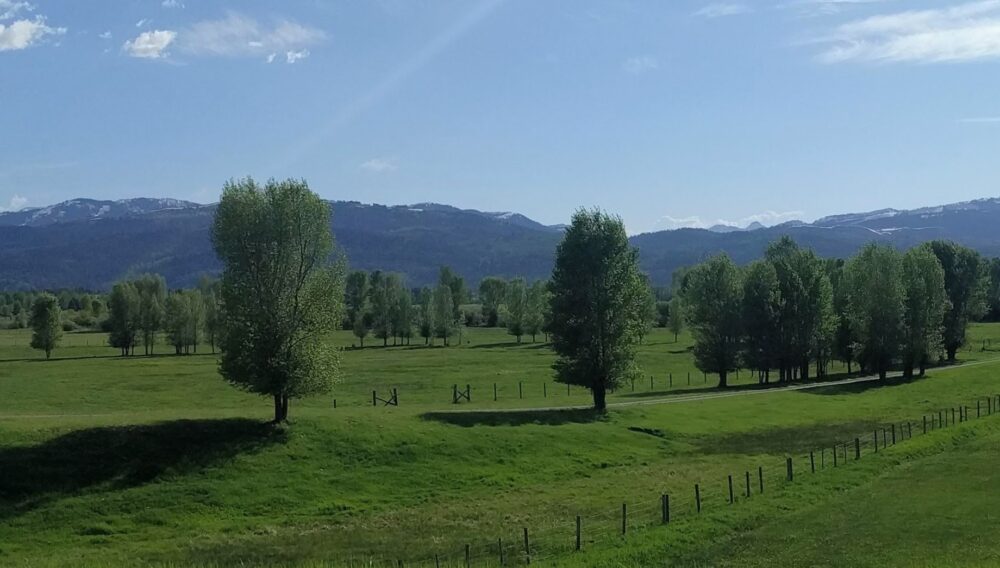
I’ve Looked at Clouds From Both Sides Now
Searching for any residual influence of “Back To Eden” in cyberspace, I’ve discovered that it is experiencing a bit of a revival. Amazon sells it; readers embrace Jethro’s prescriptions and techniques. Most reviews of the book (many by people who recommend it to “preppers”) are positive; one, however, stood out in its contempt. Just a worthless old hippy book, the reviewer snorted. I snorted back; my mother hardly thinks of herself as a hippy– though I sometimes think that whether she realizes it or not, she does embrace some hippy notions. Jethro lived too early to be part of the hippy movement… maybe his critics dismissed him as a bluestocking? Regardless, categorizing and labeling is problematic in so many ways; the least being it clouds the water, obscures all kinds of truth.
Tangent: One of my daughter’s best friends told her that of all the people he knows, I am the most like a “real” witch. Praise indeed. What motivated his comment is the fact that I grow, harvest, and store lavender, plus I cook from my garden (particularly with herbs). I really don’t mind this perception, but it would be sad (not to mention inaccurate) if this was all anyone ever remembered about me.
I do owe some sort of tribute to Mr. Kloss, who keeps turning up in my periphery. Aside from (at the very least) my horticultural respect for him (and horticultural respect is a big deal), I recognize that even though I was never entirely comfortable with Jethro’s words, he walked a path that I’m journeying on now. We are co-travelers. With him (and the rest of humanity), I keep trying to find my way back to Eden.
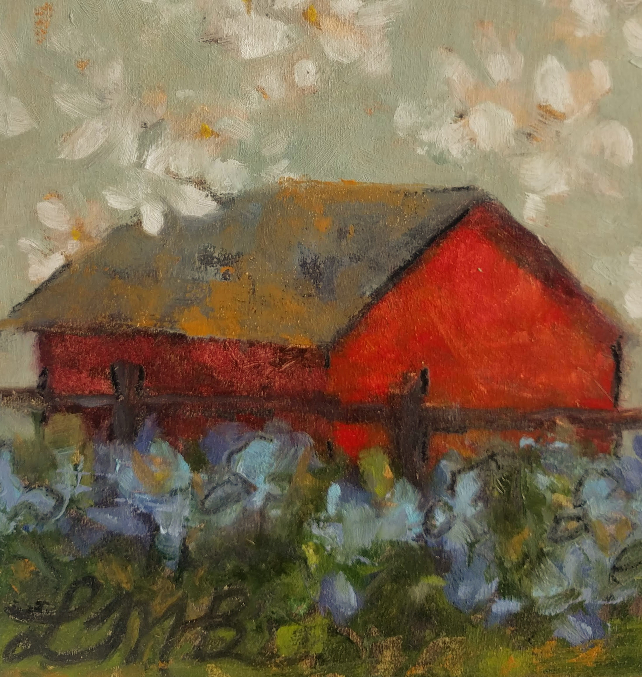
Over The Garden Wall
This is true both metaphorically and literally. Can we count all the ways we seek Paradise Lost? Not in a lifetime. But under the auspices of a blustery April day in the desert, I can count one now: how I keep trying to get back to Eden through gardening.
Gardening is a heavenly strategy.
I’ve written about this before, how I’m always reaching for paradise via another garden. All the gardens I’ve planted, digged and dunged and pruned and wept (and rejoiced) over, and then abandoned. Four times now, I’ve found myself in the next treeless dirt plot under some version of an agitated spring sky, wondering whether my soil (can I even call it that?– I bear so much angst for alkali clay) can sustain green life. Trying hard not to fear all the possible encroachments: grasshoppers, earwigs, squash bugs, drought– covenants, codes, restrictions, morning glory. And now deer.
Not one garden did I leave against my will or under real duress; there’s never been the inexorable glow of cherubim and a flaming sword to sweep me out. I’ve always more or less chosen to leave– or I should say, we’ve chosen… because I’m talking about co-choice here, a delicately balanced, give-and-take consent, compromise, leap of faith. Frank and I have consistently partnered up and owned these abandonments together– thinking not in terms of what we were losing (a house and its adjacent garden), but putting our hope in what we would gain (a different house, with a different garden). Whether we were foolish or wise to leave each time (less than half the gardens we planted survived our leaving), and whether we managed it with grace, really doesn’t matter now, though I’m apt to grieve if I dwell too much on what we left behind. We departed, and here we are, again. Longing in our different ways for Eden, stretching for the confidence and courage to create it again.
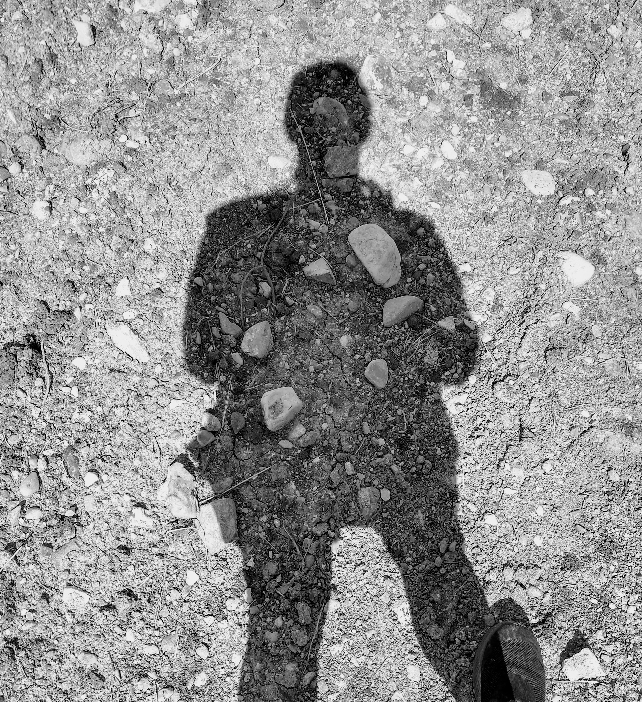
Ways and Means
Frank favors serenity and low maintenance. A perfectly flat, seamless greensward appeals to him. Also, smitten as he is by Technology, he is driven by the imperative to find applications for her in his landscape– or to make her his landscape altogether (he’s tired after all our building and abandoning homes and gardens). He’s requested that a goodly portion of our dirt plot be dedicated entirely to solar panels.
My dreams tend more to the Great Dixter/Oudolf’s Trentham end of the spectrum– of course impractical, because I’m tired too. However, gardening is still my thing; like a salmon swimming upriver, I must go on until I die. Both reasonable and ridiculous ideas flower perennially in my brain, keeping me awake and giddy at night, creating anxiety in my bedfellow, Frankly my Dear.
But the man loves me! He loves me enough to work in the alkali dirt with me, risking septic lines and his good character to contour the land. Also the good character of his rig; he’s driven 40 miles per hour all the way home from the landfill with a yard of compost fluttering mutinously in the back of his truck. Often (as in frequently).
(Compost reforms alkali… eventually. It might take a millenium– but you’ve got to start somewhere).
He even lets me lead out in this final approach to Eden, trusting I’ll respect his limits, grateful I’ve bought into the solar panel scheme. I’m pretty sure we can build a compromise somewhere, between our two extremes.
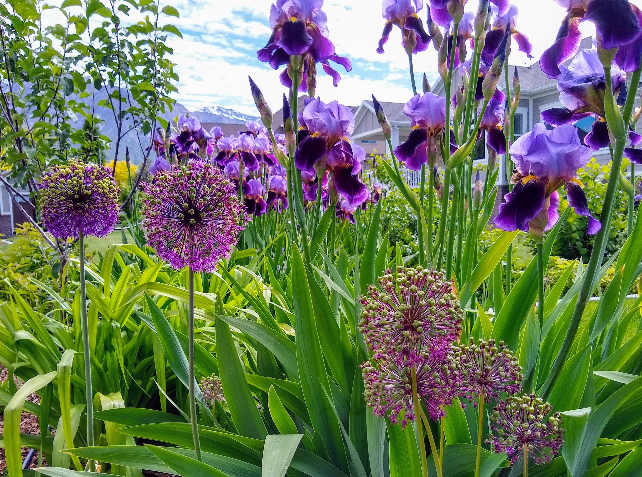
Of Peace and Swords
This seems to be a common theme as we wander our wildernesses in search of Eden: Conflict–with its corresponding necessities of labor, loss, grief, compromise, adaptation. Jesus– the author and finisher of all that is good and beautiful– said, “Think not that I am come to send peace on earth; I came not to send peace, but a sword.” In Matthew’s context, Jesus is addressing his apostles, whom he has invited to preach his gospel of love and peace to the world, knowing there will be opposition to and conflict in that work.
In my context, Jesus, Master Gardener, is telling me that I can attain nothing truly great (including paradise) without encountering and overcoming- transmogrifying- disarming… ah, enduring! some sort of adversary (the irony here is that sometimes, my most difficult adversary is myself). There is, he tells me, opposition in all things bright and beautiful.
I have found this to be true. Heartbreak and fatigue are common side effects when I’m in the pursuit of good things (gardening and otherwise).
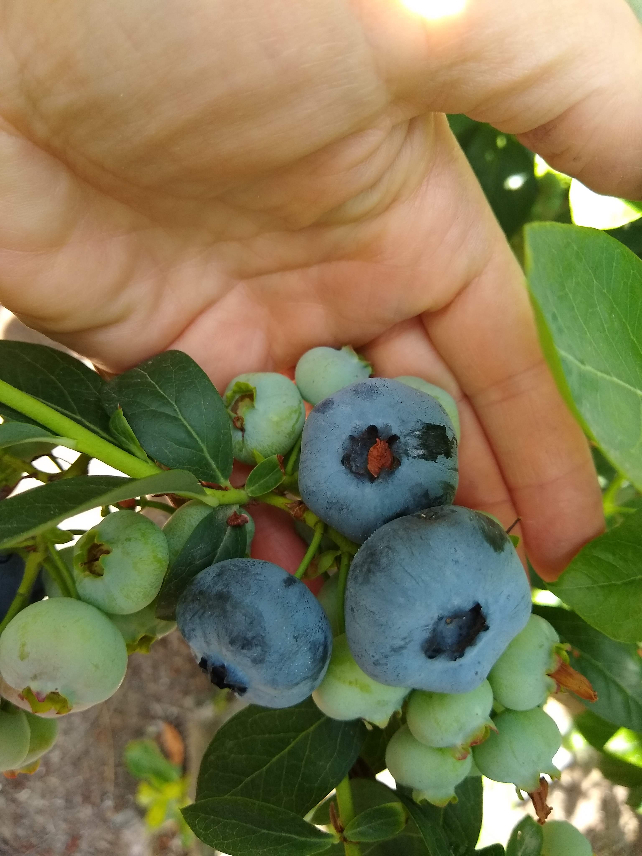
Let Me Count the Ways
Through gardening, I’ve learned to consider my sources as I search for horticultural truth and wisdom. For instance: gardening magazines, as pretty and inspirational (and even instructive) as they are, have, on occasion, yanked my chain. Besides offering such impractical ideas as chickens in the garden (there goes everything to chicken scratch!–including the supposedly poisonous rhubarb) and a flowering thyme lawn (so transitory, so much maintenance, so many happy bees underfoot), magazines are inherently mired in a conflict of interest. With their words, they peddle trends and conventions that coalesce with their ads. They address me at least as much as consumer, as a Back To Eden hopeful.
Gardening is rarely as easy or as cute as a magazine is obligated to make it out to be— and that’s ok, as long as one takes its words with a grain of salt.
My best sources for garden wisdom are other experienced gardeners (thank you, Mom and Dad), my own trial and error, and university experiment extensions (wisdom through experiment and experience, a wonderful thing).
Another truth I’ve learned through gardening is that you reap what you sow… and then some. Miracles happen, with a caveat: uncover new ground, and weeds will grow first. There’s this preliminary, necessary fight to overcome noxious-ness before any significant progress with fruit or blooms can happen.
Still, never give up! When a garden is digged and dunged and pruned and wept over (and consistently weeded), it doesn’t just produce what is sown– it magnifies and multiplies the efforts of the gardener in inconceivably abundant ways. At the outset of all my gardens, I started as many plants (lavender in particular) as I could from seed. Compared to the vast expanses of empty dirt I always had to fill, my scrawny, vulnerable little seedling attempts looked futile. Not all survived. But within a couple years, the survivors grew, flowered, and went to seed. Volunteer flowers, tomatoes– even pumpkins sprang up everywhere, filling every available space, surprising and delighting me with their appearances, the happy, incidental accidents, the lovely, unplanned juxtapositions. I gave lavender starts away.
There’s such beauty in that, such abundance and generosity– one of my very favorite things about gardening, and one of my favorite metaphors for life.
Had I a Golden Thread
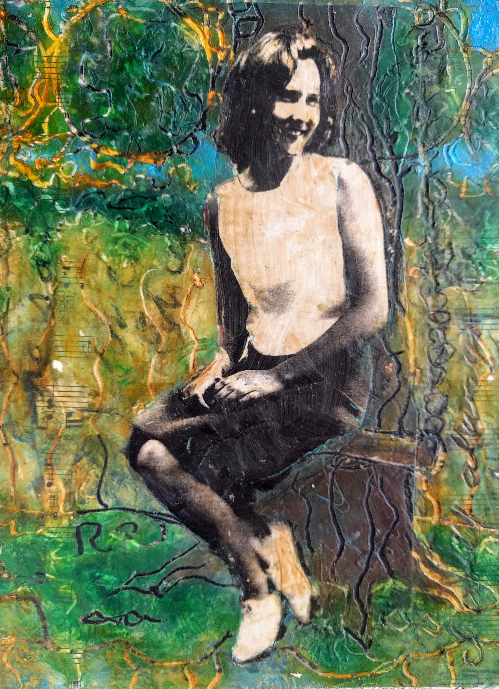
In this happy conflict, I’ve also learned that inheritances are sacred, powerful things, even the scrappy, dog-eared ones. Nothing we inherit should be taken for granted; these are gifts we cannot easily recreate.
I sacrificed relatively little to gain my first garden; it was, rather, an heirloom, as it had once been my mother in law Edna’s Eden, before she gave it over to the renters who preceded us. When Edna left, it would have been as neat as a pin, but when we finally got it, it was indeed dog-eared and overgrown.
At first I saw the hordes of irises (becoming hordes is what unrestrained irises do) as a problem to be eradicated. New to gardening, I didn’t know what the sword-leaved, out-of-bloom plants were, but once I’d dug them up, I couldn’t bring myself to dispose of them. After all, now that I’d expanded my borders (my dreams were as Great Dixter as ever then), there was a lot of empty space to fill, and not much by way of a gardening budget. I replanted the healthiest in recurring swaths through my newly enlarged borders. Till the moment they bloomed the next year, I couldn’t have known how precious a surplus of iris could be (currently, the price for one start ranges between $8 to $32– or more. I had hundreds). And then, with that first big bloom after they were replanted, I was staggered by their beauty, their flamboyant purpley rhythm an invitation to the dance that brought all the new and old and seemingly irrelevant players together (in perfect harmony, Stevie Wonder would sing).
To Edna’s timeless foundation of lilacs, irises, Roses of Tea and Roses of Sharon, Burning Bushes, fruit trees, and so on and so forth (I kept discovering more and more treasure as I untangled this inheritance), I added my own prizes: Bourbon roses (and Bourbon is apt– their fragrances are that intoxicating), stretches of Shirley poppies and nasturtiums encompassed by a low hedge of lavender. Tomatoes, white pumpkins, and oh, yes, strawberries. I’m tempted to keep going with the list… I loved it all so much. Gardening with such an inheritance had landed me in my first paradise. What had at first appeared to be an overgrown liability was in fact an immense wealth.
My appreciation for my mother in law blossomed.
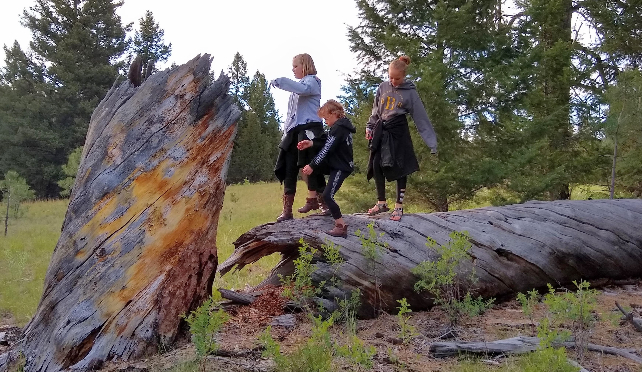
Paradise Lost
But, paradise lost! Right? Isn’t it a prevailing condition of the wildernesses that we live in, that we are forever forgetting/misplacing/disregarding our inheritances? Frank and I sold that first paradise for the next (our birthright for a bowl of GrapeNuts), but before we did, we cut down a weeping white birch and a silver maple. The maple, Edna conceded, might threaten the septic lines, yes. It was technically a weed, yes (I can still feel her hurt). But the cutting down of the birch was grievous. Her favorite indulgence, the once-beautiful birch struggled after she left it. It had some sort of malady I should have consulted Jethro about, but also, it cast shade in the front yard.
I was still enough of a gardening novice (and reading too many magazines) to not completely comprehend or appreciate shade. Greedy for more flowers, I wanted full sun everywhere– to plant my pretty, pretty flowers in. Perhaps with time and care, the birch could have regained its former glory, who knows. Ultimately it perished because I wanted more flowers, not because all hope for it was gone. Given that tree now, I would do so much more to save it (since that first garden, I never again have had the luxury of shade from a mature tree).
Edna has another now in her current front yard, and it is a thing of beauty (proof that inheritances can be found again).
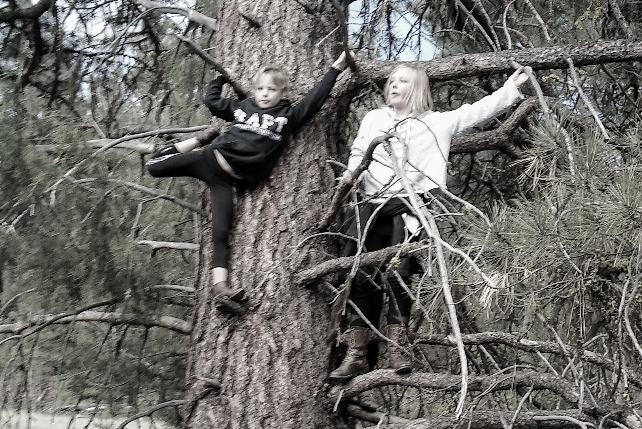
Wear it Out Loud
I ran across a moment on YouTube while I was ruminating about Back to Eden gardening. The hostess of Roots and Refuge Farm (who has the presence of mind to grow squash up over an arched trellis) conceded to her couple hundred thousand loyal viewers that yes, Roots and Refuge is moving. They’re selling their impossibly beautiful, productive farm for the next (larger) endeavor. I was a newbie viewer; even I was shocked. What? Yes. They’ll be selling the farm by the end of this year. She spoke earnestly (while she planted handfuls of baby leeks in a tunnel greenhouse) of why they (she and her version of Frank and children) do what they do on their farm and on their YouTube channel– their desire to invite everyone to the refuge of their garden– to the refuge of gardening in general. How in moving on, they’re just upping the ante. That in the coming year, before they walk away from their current paradise, they will finish a barn (because the property needs it) and a perennial garden, and they’ll plant a profuse vegetable garden. For one last beautiful hurrah.
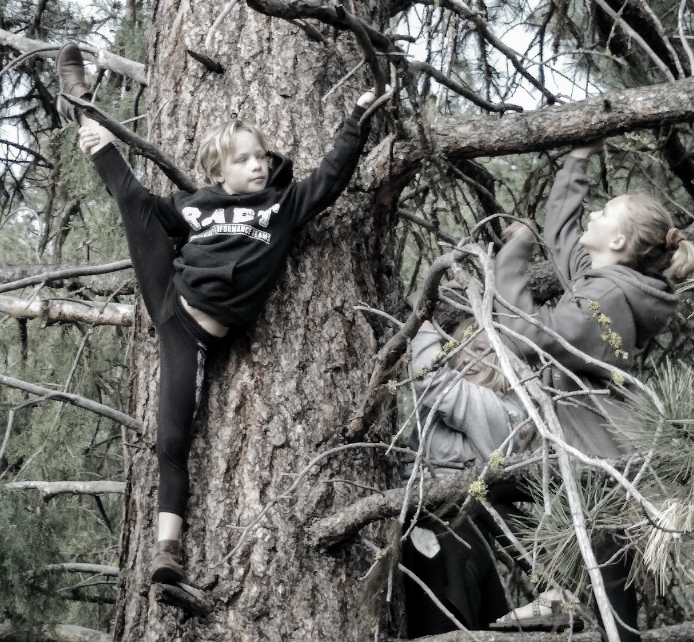
Hurrahs and Hallelujahs
One last hurrah. Mmm, I remember those. At first my heart fell for her sake. They couldn’t know, they couldn’t have any real idea, the loss that lay ahead. You don’t know til you pass through it. Like us, they are thinking not in terms of what they are losing, but putting their hopes in what they will gain. In their heads, they think they’re going to take the best of their experiences with them, leave their mistakes behind (they’ve learned to start with good fences, and not let the pigs run wild), and build a Larger Paradise. Better fences, nicer pigs.
They’ve already mastered squash on a trellis.
“Heavens, don’t. Just stay and embrace what you have!” my heart ached for her. She said things I might have said: that she’d seen miracles, that they’d given her courage to do impossible things, that rooted in her faith is the knowledge that we are all stewards, responsible for what parts of the earth we touch (this precious inheritance).
She said, “I want to know that when I leave my farm, when I hand this farm to someone else to steward, that this property Wears My love Loudly.” I nearly wept, not because I’m cynical about the chances of her farm surviving her leaving, but because I’m moved by that gesture; I recognize that urge, that wish, that yearning to shout our love– through gardening, mothering, writing, painting, befriending, inventing, whatever. But often, I feel as if I’m shouting my love into the wind. It comes back to me, seemingly impotent: a ghostly wail.
It occurs to me that Jethro, filling his book with what he thought he should fill it with, was doing his best to shout, too. Doesn’t matter that I couldn’t quite find it in me to altogether embrace the shouting– Jethro was true to what he believed in.
I was musing on this when Jesus came to mind again. Wasn’t his entire ministry, and isn’t his continual shepherding even now a divine, insistent, perfect manifestation of love? A most celestial shout, a most profound inheritance? And yet it falls on all kinds of ground, from the hard-baked stony sterile, to dirt too shallow or overrun with thorns, to a blessed patch of fertile. He is both “a light which shineth in darkness, and the darkness comprehendeth it not,” and “the light and life of the world.” Ultimately he was crucified for sharing his love too loudly. Do I regard it nearly enough? Everything in his creation wears it, this love– this divine attempt to draw us all eventually back to his paradise.
Love is the Point
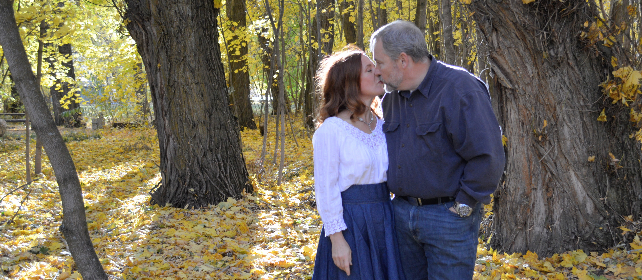
“He that taketh not his cross, and followeth after me, is not worthy of me,” my Master Gardener says. He invites me to lift up my voice “as with the sound of a trump, both long and loud…” in sharing his love. Come what may; the point is to turn the light on, sow the seeds. We don’t get to decide if anyone will appreciate– or even notice– that the light is glowing and that the garden is flowering. “ I send you forth as sheep in the midst of wolves,” Jesus says to the flock that he’s invited to his gospel-of-love-and-peace conflict. “Be ye therefore wise as serpents, and harmless as doves.” For his love extends to all, wolves and sheep. What is a wolf but could be a sheep, and what are we if not prone, in moments of hunger, to wolfishness.
“Peace I leave with you, my peace I give unto you: not as the world giveth, give I unto you. Let not your heart be troubled, neither let it be afraid.”
It’s nonsensical to lose hope, or to give up, gardening and whatnot.
In Christ’s invitation, I remember again the miracles, and feel enlivened and enabled by the memories. Experiments, experience. The one seed that can become so, so many beautiful things, the multiplications and magnifications that come of digging, dunging, pruning, weeping— shouting love as with a trump, both long and loud.
In finding my way back to Eden, love is always the point.

Comments on this entry are closed.
Love your gentle analogies through life and gardening. Love it and I love you.